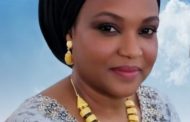
The author
By Comrade John Odah
Thirteen years ago, Alexander Joseph Amedu contributed a chapter to a book of tributes on me when I turned 50. In Amedu’s piece on my turning 50, he recalled his coming to live with me in an Isolo Flat I was sharing with two of my colleagues. For the five or so months he stayed with us, Amedu had this to say:
“In John’s place at Isolo Lagos were other vibrant Labour staffers who were sharing the Flat together. These people included Comrade Emma Ezeazu; Chris Uyot, Chom Bagu and the late Chima Ubani and some others that I cannot recollect their names now. I learnt first-hand the way and manner labour issues were being articulated by these young brains. It was always one prolonged debate on national issues after the other. Of course, coming from the private sector saw me on the other side of the argument. The debates were robust, devoid of any personal animosity. I am saying this because, despite the fact that I was “squatting” with John, my liberty to express myself the way I wanted was not curtailed. In some debates, I would argue vehemently against the position being canvassed by these labour officers and John, in his usual cool manner, would speak to me in Idoma language to cool down. These debates mostly on Friday and Saturday nights usually went far into the early hours of the morning, but we enjoyed them.”
In the contribution, he had also recalled that we first met in April 1973 in Ugbokolo, near Otukpo in Benue State of Nigeria where both of us attended the interview for admission to Mount Saint Michael Secondary School, Aliade.
Our second meeting was inside a bus from Otukpo to Aliade in September 1973 when, as successful students in the earlier interview, we went to resume as first year students in Aliade. He also recounted how fate again threw us into the same class – IB when, upon reaching the school, we were registered into the two available classes, A and B.
The foregone is why writing this eulogy in April 2023 – 50 years after our eventful first encounter as thirteen-year-olds – is a difficult engagement. With the benefit of hindsight, it was as if we were preordained that our lives will crisscross each other and become lifelong friends and associates.
Though he was among the youngest in the class and in our set, it was clear to all of us from our first to our final year that he was one of the most focused and studious students among us. It was not surprising that he was among the students that made Division One in our West African School Certificate (WASC) Exams at the end of June 1978. Some of us believed that he was disappointed with himself that he didn’t make a Distinction in the WASC examination. For, five years later, he made sure no one was going to deny him the exhibition of his God-given intellect. But that was at the Institute of Administration in Ahmadu Bello University (ABU), Zaria, where our Alex graduated with First Class Honours’ degree in Business Administration in June 1983. He got automatic teaching appointment immediately after National Youth Service in the faculty on the basis of his outstanding academic achievement.
After some five or so years of teaching in ABU and obtaining a Masters’ degree, Alex opted to move his career to the private sector. He took up appointment as a stockbroker with Caribbean Finance Ltd in Lagos. He later moved to NAL Merchant Bank. His path and that of Dr. Shamshudeen Usman crossed while working at NAL Merchant Bank. In 1999, while Dr. Shamshudeen was moving to Abuja to take up the position of Deputy Governor of the Central Bank of Nigeria (CBN), he convinced Amedu to follow him to the CBN, where he was appointed Assistant Director.
Moving to work there entailed relocating from the hustle that was Lagos life to more hassle-free and serene work environment that Abuja provided. The NLC headquarters, around this time when I was appointed General Secretary, also moved from Yaba-Lagos to the Central Business District almost overlooking the imposing CBN building in the same location in Abuja.

Mt St Michael’s unchanging signboard
Amedu loved his work in the CBN and when Dr. Shamshudeen left to become Minister of National Planning, he resisted the temptation to follow him. Prof. Charles Soludo’s tenure which followed was perhaps Amedu’s best period in the CBN, a period defined by promotions based on competitive written interviews which happened as and when due. He got promoted to Deputy Director and had important responsibilities in the Bank. When the baton of leadership changed hands and Khalifa Muhammadu Sanusi became governor of CBN, a number of things also changed as far as Amedu was concerned. He felt that the reign of meritocracy gave way to other criteria and considerations. The Lamido era was thus an unhappy period for Amedu and even after Lamido was removed by the Jonathan government, he held him responsible for disrupting the way things were done in what he considered were the “good old days” of the bank.
Amedu was deeply unhappy that people who were subordinates were made directors over more competent hands. He couldn’t understand why some of them stagnated in their position for upwards of ten years or more. it took a lot to calm him down by reminding him that he didn’t have to prove himself to anymore, having made First Class over three decades ago (now four decades), when anyone who did so then actually earned it. I would argue it out that not making the directorate grade on retirement should not be a big deal if we looked at the other favours God, in His infinite mercies, granted us in our lives.
Amedu’s father, Chief Amedu Agbara, was one of the longest-serving District Heads in idomaland. Amedu followed his father’s footstep as a Prince of Owukpa and contributed his quota to the development of Owukpa land. One of that must be the hotel he built in the community. As a development finance technocrat, he knew more than many that putting the hotel he built in Owukpa rather than in an urban setting like Otukpo, Makurdi or even Abuja would have earned him more turnover in patronage and profits. However, the desire to provide such an infrastructure for his community overrode the profit considerations. A hotel signified what he wanted to see in the community – the openness, the collapse of borders and a much freer and happily people.
Alexander loved our common heritage of coming from one of the most renowned Catholic secondary schools in the entire Middle Belt. Our Mount Saint Michael, Aliade, which turned 70 years last February was established in February 1953 to produce manpower and human resources for the colonial government and to train young Nigerians for the task and responsibilities of independence. At the level of Idoma land, most of the emerging elites in all the 22 districts either went through MSM Aliade or had their bid to enter the school frustrated because of limited space and the competition to gain entrance.
The school, in its 70 years, had produced, amongst others, His Eminence John Cardinal Oniayekan, many bishops, a former Chief Justice of Nigeria in Justice Katsina Alu, ministers, senators and national party chairmen like Chief Audu Ogbeh, amongst other prominent public figures.
Amedu, in his life time, was in the forefront of keeping the flag of Mount Saint Michael’s flying. His high standard in requesting accountability by people given public trust sometimes made him to be at odds with some in the leadership of our alma mater. He was, however, very active in the affairs of the 1973-78 set, where he led the Abuja Branch of the inner Heroes for many years. He ensured we provided for our set members in need and whether in good times like marriages or bad times like death of a member or his close relations, we will always be there to share in the joy and sorrows. Alex played his part as one of our mates that the Almighty made successful amongst us.
Our friend was also a happy family man. As the son of a District Head, he came from a large clan of the Amedu Agbara children. This placed responsibility of catering for not just his immediate family and siblings but also ensuring that his half-brothers and sisters’ children also come under his wing.
Father to six children himself, he ensured that they all had the best education they could have as our own experiences showed that the only way we could advance and have upward social mobility from our rural backwaters was through Western education. Alexander achieved what we all as fathers strove to achieve when his first child, Oyanu gave him a grandchild whom he again named Oyanu after his mother, the late Mrs Elizabeth Oyanu Agbara.
Amedu left behind a lovely nuclear family of Mrs Ann Amedu, herself a banker; the other children, apart from Oyanu, are Agaba, Uji-Ona, Atama, Abah and Ene, the baby of the family. The children, represent the greatest legacy that their beloved father has bequeathed to us.
What do I say than Oyi, go in peace as you begin your journey home to meet your ancestors and your creator. You have absolutely played your part.
Odah, the author, is the Executive Secretary of the Organisation of Trade Unions of West Africa, (OTUWA)




























